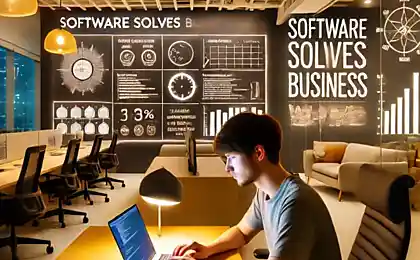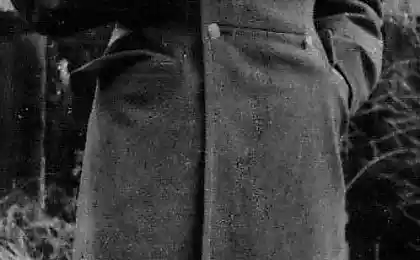469
10 ways to work without losing creativity
1. TAKE A VACATION EVERY THREE MONTHS
"The most effective method is to carve out one week for vacation — recognized venture capitalist brad feld. — My wife Amy go to the airport and fly somewhere far away. I leave the computer at home, and your smartphone give to his wife. It returns me only the end of the vacation, on the way home.
We always go to a quiet, peaceful place, but traveling and not just sitting home a week. During the journey, I can spend 100% of my time to relax and chat with my wife. All day long I read books, we talk, have fun and sleep until lunch. Returning from this vacation, I feel renewed".
2. AFTER COMPLETION OF THE PROJECT ENGAGE IN RETROSPECTIVE
"The presidential campaign was a really great team dynamics, which to some extent was based on a retrospective meeting after the completion of a project. They allowed us to stop and say to each other: "How did we do? What did we do right?
What went wrong?" — says a former technical Director of the campaign of President Obama Harper reed. Since we always use this retrospective: it was immediately obvious what went wrong, who was right and who is not — and this has been incredibly valuable practice. It is very important that everyone was aware of how things are going and to share impressions as soon as possible in order not to lose the relevance of the moment.
People sometimes forget that work can also cause pain. We have feelings, and it is crucial to Express them. If you are in a room with your colleagues and tell them: "Okay, we start tomorrow. How are you feeling, are you ready for this?", they will be able to answer: "I would not like it" or "I'm tired of our hard work, and for me it was stress, but I admire the fact that we did it." We, the people, need a real human talking about real feelings."
3. WRITE EVERY DAY
"I often advise people to write in order to know ourselves, because to me it was so helpful," says best-selling author Cheryl Strayed. — I use email for a variety of purposes, I write as the author of fiction, but I also write when I need to make a difficult decision or trying to get started.
And I think that even if the person is not a writer, he will write during a crisis situation. For example, the person who abandoned the diary for a couple of years after parting with the beloved begins to write again. This is because the practice of writing can clearly show your mind."
4. CREATE A DATABASE OF INTERESTING PEOPLE
Fond of interesting people — a strategy of prior work: spending time and money to communicate with interesting people, you will increase your chances to do it, — said the writer and entrepreneur Ben Casnocha. — Because many people know that they need useful contacts, but as soon as possible to treat someone to lunch, they are not ready.
From the point of view of forming long-term contacts if you can't find someone who will help you in the long run, you're wasting your time. Relationships, whether romantic or professional, require time to develop. A lot of time! Too hasty development of the relationship for a single transaction may jeopardize the future potential of interaction".
5. KEEP FINISHED PROJECTS
"In any project there comes a time when you're on something stuck, and in this situation it is best to step away from the computer for at least 10 minutes — like designer Sarah Felske. — If you clear your mind, ideas will come soon. Any exercise or meditation will help in this.
Besides, I always have on hand a bunch of interesting things I collect: clippings from magazines, invitation cards, which I liked, beautiful packaging — in short, everything that can inspire me. There is a special book, full of visual works are United by a common theme — they can flip through when you need ideas.
6. Get enough SLEEP
"As for sleep, I take a very tough position, says the journalist Pat Kiernan. You have to learn to say "no". When you go to work in the morning, you need to be fresh and healthy, so you should resist the temptation to visit all the parties you've been invited".
7. IMAGINE WHAT WOULD HAPPEN IN THE FUTURE
"Once I helped myself the following way: I wrote an article for the Financial Times or Wall Street Journal about his company in the future," says Rapha founder Simon Mottram. — Usually write: "I will try to accomplish." I in 2005, the year he wrote that Rapha in 2010, has already achieved great success.
We have revolutionized the Bicycle market, led the market, 25,000 clients met at our bike cafe, going there to go somewhere together. I did not write that, maybe we'll make it — I described it like it already happened. And five years later was exactly as I predicted".
8. BRAINSTORM AT THE BAR
"I'm not doing all the sketches in the Studio, and go to a bar / pub, restaurant, Park and sit there for an hour and a half," says designer James Victor. — It has become a habit, to leave the Studio at 4 or 5 o'clock in the evening and sit at the bar with a beer, mentally working on a new idea. It is really a good habit.
I can't do analytical work in the Studio — too much going on in one place. How many great architectural masterpieces were designed on napkins? It happened because people were free in their thoughts, free from routine work."
9. EXIT THE USUAL PLACE
"I don't think I need to sit in the office and stare at a blank page — says radio host garrison of Keillor. — It is better to walk around the room, exit it and make notes about what you observe around. You will start to compare things that I see, things I think — and this is the beginning of a new article.
I think it all ultimately starts in the area of the horizon and the world: conversations with heard, glimpsed events. There is a big chance that, overhearing a snatch of someone's conversation, you will come to interesting thoughts."
10. USE OF MORPHOLOGICAL SYNTHESIS
"Morphological synthesis is a way to break your thought process into segments. You must take 4-5 adjectives, and then start brainstorming in their direction, shares the secret of the productive work of actor and Director ze Frank. — Usually when I have an idea, I deliberately abandon a sense of proportion. Let's say Procter Gamble has a new toilet paper. I'm trying to come up with the concept, regardless of its scale and realism. published by P. S. And remember, only by changing their consumption — together we change the world! ©
Source: vk.com/business_inside?z=photo-43037456_375760400%2Falbum-43037456_00%2Frev
"The most effective method is to carve out one week for vacation — recognized venture capitalist brad feld. — My wife Amy go to the airport and fly somewhere far away. I leave the computer at home, and your smartphone give to his wife. It returns me only the end of the vacation, on the way home.
We always go to a quiet, peaceful place, but traveling and not just sitting home a week. During the journey, I can spend 100% of my time to relax and chat with my wife. All day long I read books, we talk, have fun and sleep until lunch. Returning from this vacation, I feel renewed".
2. AFTER COMPLETION OF THE PROJECT ENGAGE IN RETROSPECTIVE
"The presidential campaign was a really great team dynamics, which to some extent was based on a retrospective meeting after the completion of a project. They allowed us to stop and say to each other: "How did we do? What did we do right?
What went wrong?" — says a former technical Director of the campaign of President Obama Harper reed. Since we always use this retrospective: it was immediately obvious what went wrong, who was right and who is not — and this has been incredibly valuable practice. It is very important that everyone was aware of how things are going and to share impressions as soon as possible in order not to lose the relevance of the moment.
People sometimes forget that work can also cause pain. We have feelings, and it is crucial to Express them. If you are in a room with your colleagues and tell them: "Okay, we start tomorrow. How are you feeling, are you ready for this?", they will be able to answer: "I would not like it" or "I'm tired of our hard work, and for me it was stress, but I admire the fact that we did it." We, the people, need a real human talking about real feelings."
3. WRITE EVERY DAY
"I often advise people to write in order to know ourselves, because to me it was so helpful," says best-selling author Cheryl Strayed. — I use email for a variety of purposes, I write as the author of fiction, but I also write when I need to make a difficult decision or trying to get started.
And I think that even if the person is not a writer, he will write during a crisis situation. For example, the person who abandoned the diary for a couple of years after parting with the beloved begins to write again. This is because the practice of writing can clearly show your mind."
4. CREATE A DATABASE OF INTERESTING PEOPLE
Fond of interesting people — a strategy of prior work: spending time and money to communicate with interesting people, you will increase your chances to do it, — said the writer and entrepreneur Ben Casnocha. — Because many people know that they need useful contacts, but as soon as possible to treat someone to lunch, they are not ready.
From the point of view of forming long-term contacts if you can't find someone who will help you in the long run, you're wasting your time. Relationships, whether romantic or professional, require time to develop. A lot of time! Too hasty development of the relationship for a single transaction may jeopardize the future potential of interaction".
5. KEEP FINISHED PROJECTS
"In any project there comes a time when you're on something stuck, and in this situation it is best to step away from the computer for at least 10 minutes — like designer Sarah Felske. — If you clear your mind, ideas will come soon. Any exercise or meditation will help in this.
Besides, I always have on hand a bunch of interesting things I collect: clippings from magazines, invitation cards, which I liked, beautiful packaging — in short, everything that can inspire me. There is a special book, full of visual works are United by a common theme — they can flip through when you need ideas.
6. Get enough SLEEP
"As for sleep, I take a very tough position, says the journalist Pat Kiernan. You have to learn to say "no". When you go to work in the morning, you need to be fresh and healthy, so you should resist the temptation to visit all the parties you've been invited".
7. IMAGINE WHAT WOULD HAPPEN IN THE FUTURE
"Once I helped myself the following way: I wrote an article for the Financial Times or Wall Street Journal about his company in the future," says Rapha founder Simon Mottram. — Usually write: "I will try to accomplish." I in 2005, the year he wrote that Rapha in 2010, has already achieved great success.
We have revolutionized the Bicycle market, led the market, 25,000 clients met at our bike cafe, going there to go somewhere together. I did not write that, maybe we'll make it — I described it like it already happened. And five years later was exactly as I predicted".
8. BRAINSTORM AT THE BAR
"I'm not doing all the sketches in the Studio, and go to a bar / pub, restaurant, Park and sit there for an hour and a half," says designer James Victor. — It has become a habit, to leave the Studio at 4 or 5 o'clock in the evening and sit at the bar with a beer, mentally working on a new idea. It is really a good habit.
I can't do analytical work in the Studio — too much going on in one place. How many great architectural masterpieces were designed on napkins? It happened because people were free in their thoughts, free from routine work."
9. EXIT THE USUAL PLACE
"I don't think I need to sit in the office and stare at a blank page — says radio host garrison of Keillor. — It is better to walk around the room, exit it and make notes about what you observe around. You will start to compare things that I see, things I think — and this is the beginning of a new article.
I think it all ultimately starts in the area of the horizon and the world: conversations with heard, glimpsed events. There is a big chance that, overhearing a snatch of someone's conversation, you will come to interesting thoughts."
10. USE OF MORPHOLOGICAL SYNTHESIS
"Morphological synthesis is a way to break your thought process into segments. You must take 4-5 adjectives, and then start brainstorming in their direction, shares the secret of the productive work of actor and Director ze Frank. — Usually when I have an idea, I deliberately abandon a sense of proportion. Let's say Procter Gamble has a new toilet paper. I'm trying to come up with the concept, regardless of its scale and realism. published by P. S. And remember, only by changing their consumption — together we change the world! ©
Source: vk.com/business_inside?z=photo-43037456_375760400%2Falbum-43037456_00%2Frev
Scientists have discovered a termite mound older than two thousand years
33 sites that will make you a genius























